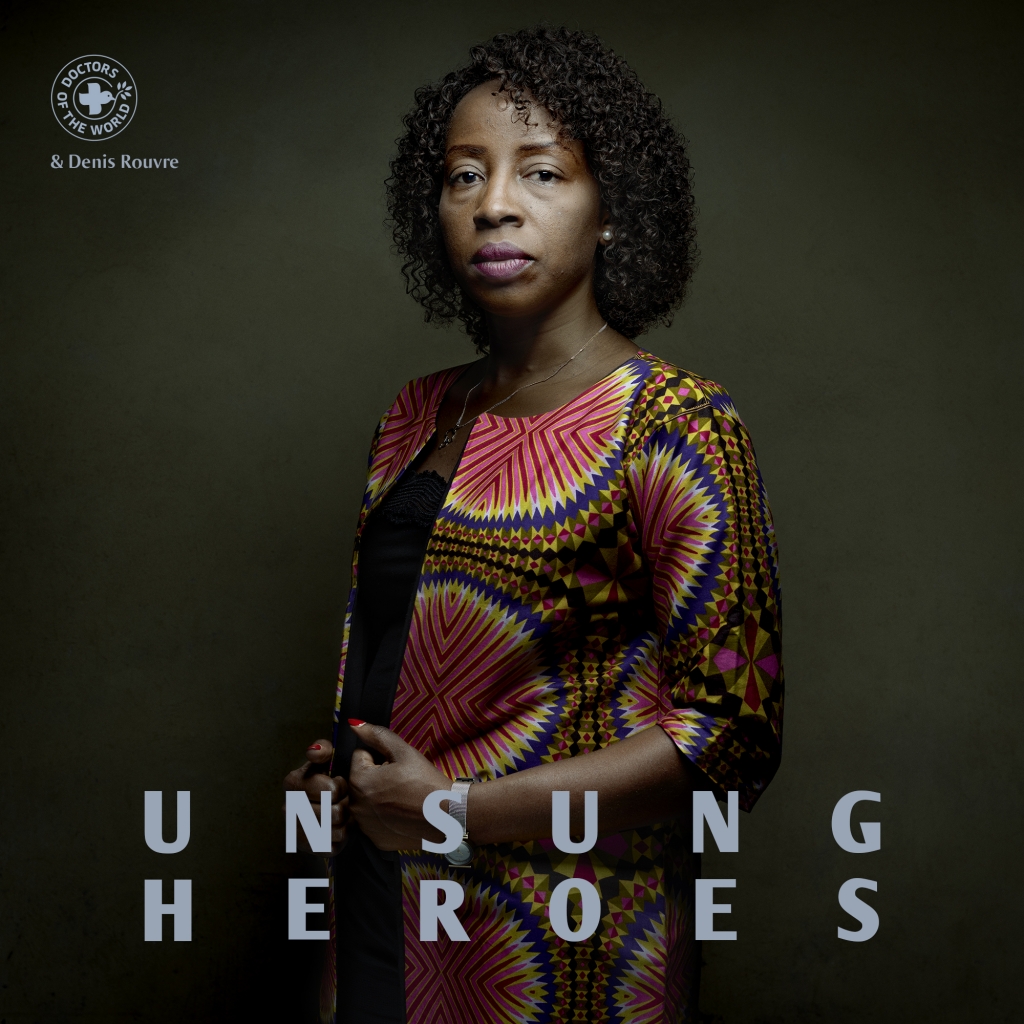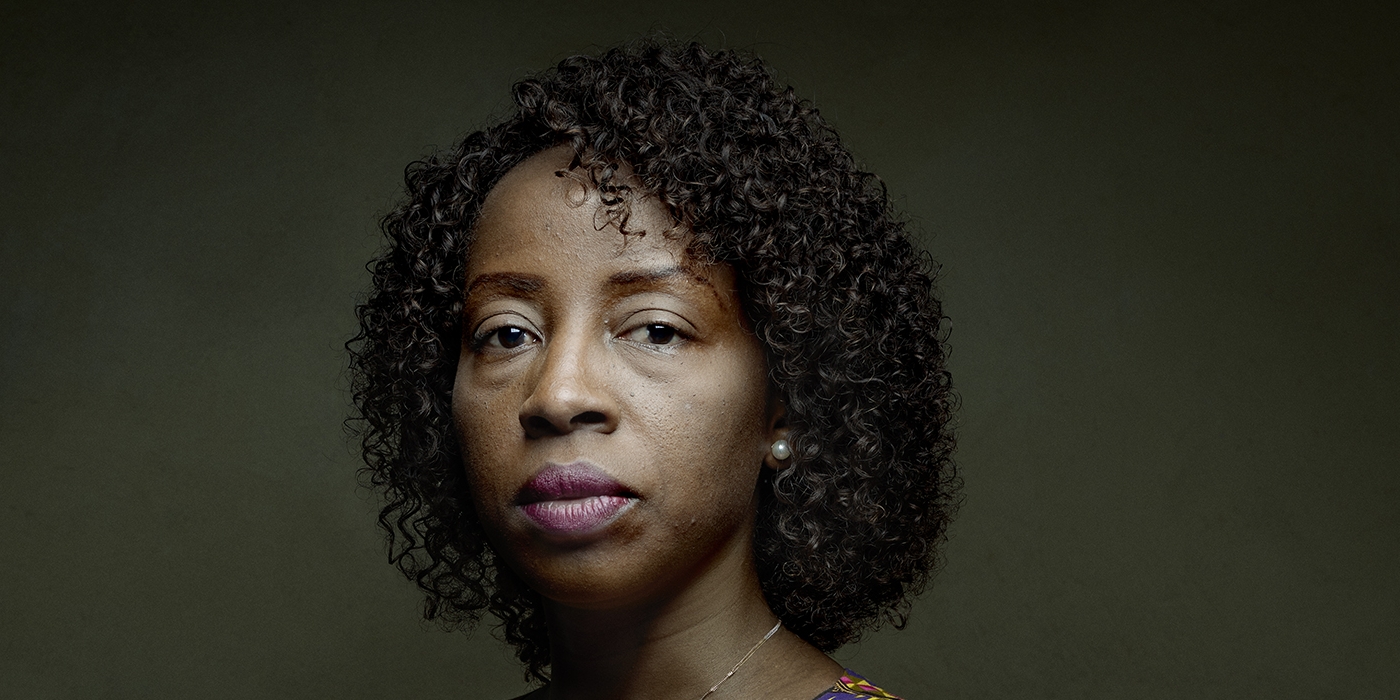Unsung Hero: Anny
Published 4th March 2019
My name is Anny Tenga Modi. I’m 37 and I have an 18-year old daughter. I became an orphan when I was 13.
I run an organisation called AFIA MAMA. I’m a feminist activist campaigning for women and children’s rights, particularly regarding issues of leadership and participation.
I’ve been living in Kinshasa for four years now. I came back to DRC from South Africa where I spent over 10 years as a refugee. I was my father’s princess. He was in politics. He died when I turned 13. It was one year before the genocide and two before the first so-called war of liberation.
As an orphan, I was displaced to a town in east DRC called Goma. Goma is famous not only for the number of wars it has been through, but also for the sexual and gender-based violence women and girls have been victims of for many years. My community rejected me because of my physical appearance. I look as if I belong to a different ethnic group, but I actually don’t.
During the war, when I was 17, I became a mother; a teenage mum. I went to Kinshasa, but the stigma was just as bad. It was a lot of psychological pressure and a lot of pain for a teenager. At the same time, I had to be a mother to my daughter while I was still a child myself.
I went back to school in Kinshasa to get my high school diploma. But even there my appearance didn’t allow me to live freely, so my uncle decided to send me to South Africa where I spent over 10 years as a refugee. Imagine the psychological and moral suffering I had to endure, and then ending up a refugee and victim to xenophobia and racism.
This was the time when I promised myself that I would become a “Voice of the Voiceless”. My activism began by advocating on behalf of women and girls in refugee reception centres. They had no access to basic services even though they were available free of charge, because they couldn’t speak the language, couldn’t pay bribes or didn’t have the resource to fight their way in.
Over time we saw women in my home country who needed me. DRC had by then been dubbed “rape capital” because of the sexual violence being used as a weapon of war. I wanted to return to my country, to speak out for the women and girls left behind, for the ones who continued to live facing the violence and suffering I had endured but had been fortunate enough to escape.
I decided to see how I could contribute, make a difference, spread women’s voices while helping them to improve their status, their well-being, economic empowering and their personal development along with enhancing their participation in the running of their country.

Wars in DRC, especially in the East, are territorial as well as political. Amid the multitude of power struggles at play, it has become clear that women constitute a goldmine because, to some extent, they represent the pride of the men who possess them. One way to humiliate and destroy an enemy and secure control of his space is to target his weak spot by taking ‘his’ women and girls and systematically rape them in front of their men. We’ve turned the children into war machines, killing machines. It is systematic. So, I decided to talk about it until the world recognises this is a genocide. Violence is used to indicate victory over the enemy camp.
DRC has Dr Mukwege, who was recently awarded the Nobel Peace Prize. To us, this is an acknowledgement that this suffering is a reality. That somebody who has contributed to mitigating women’s pain can be recognised in such a way is a real comfort. One day this will be recognised as a genocide. That is why DRC has been labelled “rape capital”.
A woman who’s been raped is dead. Her life is over. After such an appalling experience, her life is gone. She breathes, she gets by, often for the people around her but not for herself. If she has children, a family, she keeps going for them. We live in a patriarchal society with lots of so-called “values” used to define what women should be. How we should behave, and what’s expected of us.
A raped woman carries all the blame – even though she’s the victim. What often gives women strength is the solidarity they have with other women who have experienced similar or other forms of violence. They share their experiences and also their suffering. Some areas benefit from a lot of awareness raising and various humanitarian initiatives, and these help.
Sexual and reproductive health is an issue for women who have endured violence. We have very few hospitals who cater for fistulas. Lack of information and high rates of illiteracy are two of the barriers. Many materials are written in French rather than the vernacular language, which means that even when information is available, women can’t read it because it’s not in a language most of them speak. It doesn’t help a lot.
As Congolese women, our campaigning for the rights of women consists first of getting women’s voices heard and fostering their participation. We are in a country that has a legal system to protect us. This is something I have to acknowledge. On paper, we have lots of rights, but ensuring they are enacted is quite another story. Whenever we bring up our rights women are always in the minority, as female representation in parliament has never exceeded 15%. So the men have decided to reduce the package of rights legally we’re entitled to.
Second, not many women work in the judiciary system, so getting these laws enforced is problematic. We’re helping provide information in the field, for women to know their rights so as to defend them. The more decision makers are conscious of these issues, the more we can hope to gradually change mentalities. We’ve talked about stigma and discrimination, both of which result from people’s mindsets. People aren’t moving away from traditional practices and what they hear in churches.
